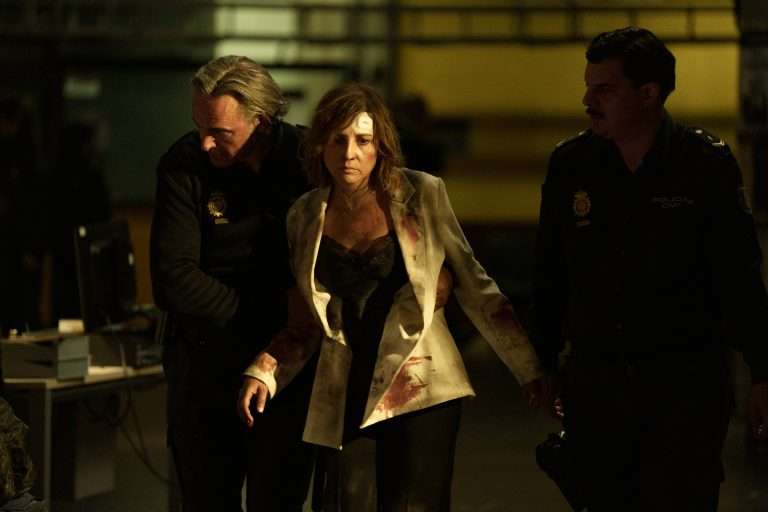Copenhagen Cowboy (2023), On Netflix: A Nicolas Winding Refn project is bound to be marked by these staples: a glacial, ambling pace that allows the story to shine a light on its whimsical details, vibrant neon lighting that induces dreamlike states, and flashes of otherworldly villainy that the lone protagonist needs to confront. NWR has always been divisive, as his works are an acquired taste and an exercise in patience, especially his long-format television projects along the lines of Too Old to Die Young. NWR’s latest made-for-tv thriller, Copenhagen Cowboy, is the result of an auteur expressing himself unfettered — this six-episode supernatural odyssey is as baffling, dreamy, and self-indulgent as it gets.
Related: Every Nicolas Winding Refn Film Ranked
Laking the measured brilliance of Drive or the layered visual motifs of The Neon Demon, Copenhagen Cowboy lingers too long on the picturesque and, unfortunately, favors style over substance. The visual aspects of the series are undoubtedly a triumph: NWR uses languid arc shots to elevate the eerieness of the subject matter, and every neon-tinted sequence (which the series thrives on) is picture-perfect, transforming the locales into a fever dream. Beneath this aesthetic brilliance lies a story about a powerful woman who possesses supernatural powers — there’s an underground fight club, an Asian diner in the middle of nowhere, and an overabundance of pigs, all of which tie together to tell a potentially riveting story. However, the sharp sting of this revenge tale starts to dull halfway, and by the time NWR brings out the big guns, it is a little too late.
Before we dive into the recap and ending of Copenhagen Cowboy, be mindful that there are MAJOR SPOILERS for the Netflix series ahead. Let us dive into the void.
COPENHAGEN COWBOY PLOT SYNOPSIS AND RECAP
MIU, THE MYSTERIOUS WONDER
The meandering plot of Copenhagen Cowboy can be distilled into the following: Miu (Angela Bundalovic) possesses a power like no other. With the ability to intentionally bring good luck to those around her, Miu slowly walks through life with various kinds of people aiming to take advantage of her gifts. NWR never really provides answers to who or what Miu is — to some, she is a gifted witch; to others, she is a dangerous demon. The episode opens with Miu, who happens to be an immigrant, being bought by a rich, corrupt woman named Rosella (Dragana Milutinović), who thinks that her mere presence can induce pregnancy.
Rosella is an entry point into an extremely seedy criminal underbelly where young immigrant women are exploited and dehumanized. The many circles of power constitute such a corrupt space. Miu is the clear disruptor in this space, who is even looked down upon by the oppressed girls who are victims in this situation — while her presence eventually leads to retribution, a girl named Cimona is strangled to death in a pigsty.
After Miu burns, Rosella’s house (which also consists of the underground brothel that exploits women) to the ground, exacting vengeance for the mistreatment she had to undergo, Miu’s gifts are odd and difficult to explain: her proximity to a barren garden can immediately lead to blossoming roses and hydrangeas, and her presence can lead to double-edged justice, such as when Andre beats up Sven for assaulting “one of his girls.” After her perplexing escape from Rosella, Miu ends up at a diner named Dragon Palace, run by a woman named Mother Hulda (Li Ii Zhang). After Miu literally breathes life into a stillborn child, Hulda offers her shelter while joking about whether she is a spirit. To answer this, Miu lets out a meow.
NIKLAS, THE BROODING ANTI-HERO
The surreal, dreamlike nature of NWR’s narrative, coupled with the extremely self-indulgent pace, robs the plot of necessary momentum. A filmmaker does not necessarily have to rush to add impetus to their story — a prime example is David Lynch’s works, which often linger a bit too long on certain shots and take their time to create a maddening labyrinth of dreamlike states. The difference between, say, Twin Peaks: The Return and Copenhagen Cowboy is that the former is a layered, intricate outpouring of creativity, while the latter is painfully hollow and undercooked.
Refn references Lynch at several points: the classic Lost Highway opening shot is incorporated in the first episode, and then there are snippets of red curtains that look similar to the ones in the Black Lodge. These deliberate evocations, although a great homage, do little to strengthen NWR’s case. Instead, it only proves that not everybody understands how dreams and reality intertwine and how meaning can be found in the bizarre.
Speaking of the bizarre, there’s the case of Niklas (Andreas Lykke Jørgensen), whose brand of evil seems so whimsical that it is difficult to understand why Miu poses a threat to him. In episode 3, Miu follows Cimona’s spirit, which leads her to a body of water, which is essentially a mass grave of all the women Niklas has killed, presumably over the centuries. Niklas and his sister, Rakel (Lola Corfixen), are definitely not humans, as they seem to have prolonged lifestyles and varying supernatural powers that might just stem from vampirism.
The origins are never so much as hinted at, but we witness Niklas and Miu engage in a fistfight, where Miu absolutely annihilates Niklas. When not getting beaten up by girls in tracksuits, Niklas broods like a Balenciaga model while fawning over his sister’s coffin and sharing an Oedipal relationship with his mother. Disappointingly, there is nothing thrilling about these borderline-macabre images except that they’re extremely pretty to look at.
COPENHAGEN COWBOY REVIEW AND ENDING EXPLAINED
THE VIOLENCE INFLICTED BY SELF-PROCLAIMED MACHO MEN
After Miu becomes protective of Hulda, she decides to help her get her daughter Ai back. Hulda’s boss, Mr. Chiang (Jason Hendil-Forssell), who runs an underground fight club, has taken Hulda’s daughter away from her because she had planned to escape with Ai. The rationale behind Chiang’s decision is properly explained toward the end when he reveals that Ai is actually his daughter, who came into being after Hulda stole his semen to have his child. Miu makes a deal with Chiang, carrying out errands for him in exchange for him releasing Ai, which he does, in the end. As Miu also has the ability to take away Chiang’s chronic migraines and soothe his heavy heart, he asks her to marry her. When she refuses, the two fight, during which Miu kills Chiang.
There is no dearth of self-proclaimed macho men in Cophenhagen Cowboy who wear smug smiles and treat women like objects while declaring their virility. There’s Andre, who trafficks helpless women and sells them to the highest bidder, advertising their sexuality in the most reprehensible manner. In the same breadth, Andre, upon learning that his daughter is in love with one of his men, immediately forces them to marry, lest a sexual relationship outside of marriage disgraces her. Problematic and outdated notions about female sexuality aside, the men in Copenhagen Cowboy are repeatedly likened to pigs. One of them is literally seen grunting and squealing like a pig when copulating/being beaten up. Meanwhile, Niklas’ father, the patriarch of a family entrenched in a primordial evil, regards his genitalia as “a cultural asset.” A literal prick, if I may.
MIU IS A LONE WOLF NO MORE
After Niklas resurrects Rakel, who holds power to take down Miu, it is gradually revealed that she is a part of a collective of supernatural beings, all of whom wear the blue tracksuit she is seen wearing throughout the series. It is unclear whether this coven is real or metaphorical. Still, it seems to point to the fact that Miu is not alone, as some spiritual circle surrounds her, heightening and accentuating her powers. Meanwhile, Rakel, who emerges as Miu’s arch nemesis, sets her sights on destroying the kind of power Miu represents: the expansive, compassionate drive to enact revenge on behalf of wronged loved ones.
In my favorite sequence in the entire series, a wild Hideo Kojima makes an appearance, acting as a Greek chorus of sorts while revealing what kind of power Miu has. Kojima-san asks Miu’s lawyer Miroslav (Zlatko Burić), to seek the help of the enigmatic Giants, who can apparently defeat Miu. This last-minute reveal, which is potentially one of the most interesting aspects of the series, is, unfortunately, a cliffhanger. We do not know who or what the Giants are, and we will have to wait and see what happens. I’m not sure if it’s worth the wait.
Refocusing our gaze on the silver lining, Bundalovic is terrific as Miu, as her meticulously controlled, deliberately one-note expressions are a masterful exercise in restraint. Miu’s lack of expression is obviously a prerequisite of her character. Still, this aspect adds nothing to the story — on the contrary, it robs charged moments of its power and provides Bundalovic with much, much less to do. During the rare moments Miu is touched by some vivid emotion or sheds tears after an intense vision, her character is reinvigorated with nuance, as the remainder of her presence feels like a drag. There are some moments in which this detached demeanor blends well, especially in spaces that defy practicality and interconnect in a baffling manner. The rest, however, is empty, whimsical excess.


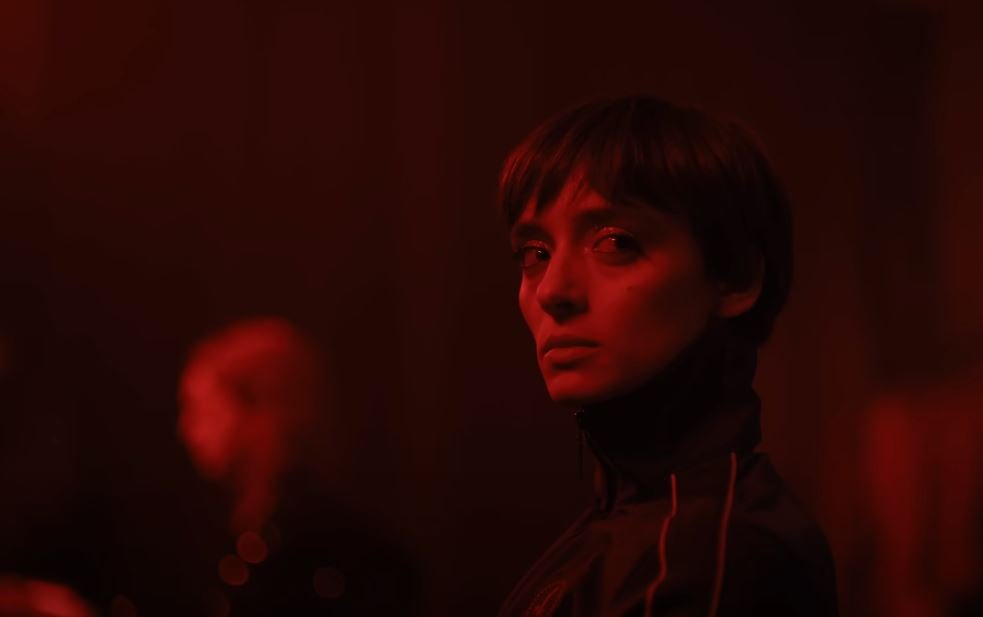


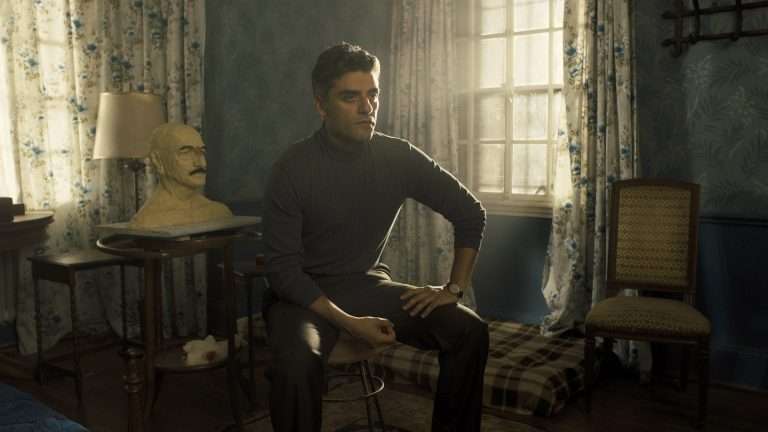
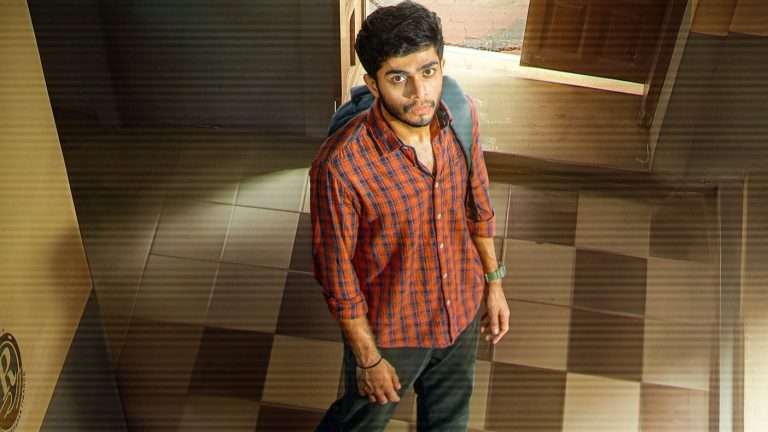
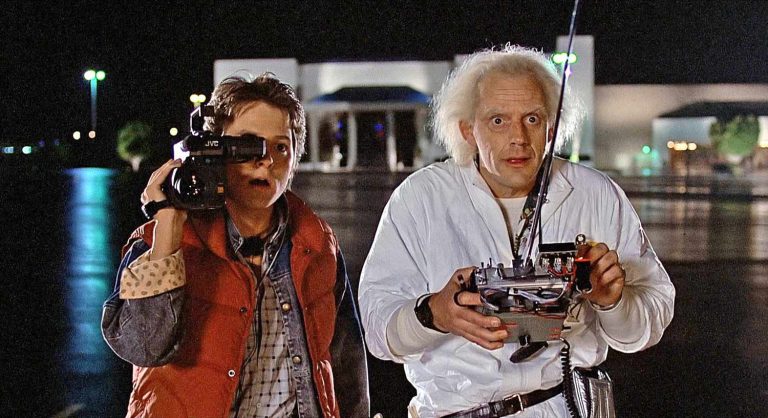
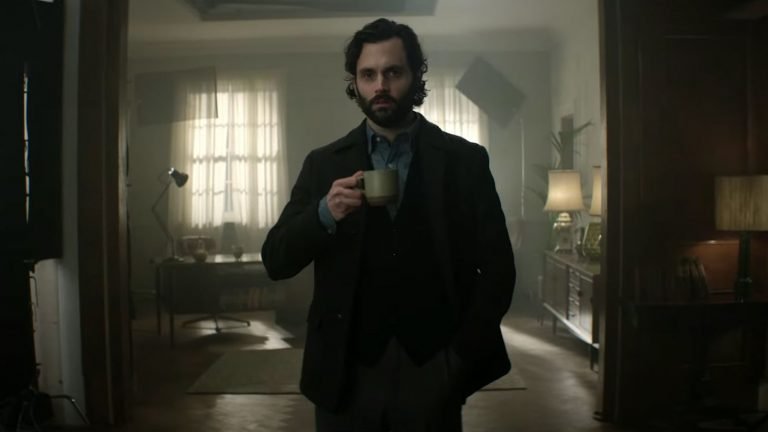
![Mother/Android [2022] Review: An emotionally hallow genre fare](https://79468c92.delivery.rocketcdn.me/wp-content/uploads/2022/01/Mother-Android-1-768x413.jpg)
